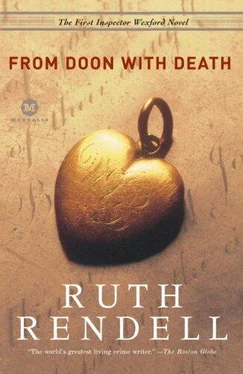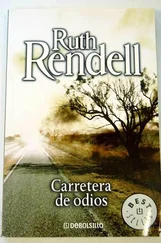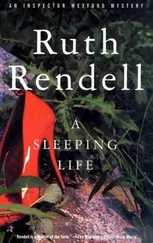Dear Nan
(Wexford read),
I can picture your surprise when you read my new address. Yes, we have come back here and are living a stone’s throw from school and only a few miles from the dear old cottage. We had to sell auntie’s house and lost quite a bit on it, so when Ron got the chance of a job out here we thought this might be the answer. It is supposed to be cheaper living in the country, but we have not noticed it yet, I can tell you.
In spite of what you all thought, I quite liked living in Flagford. It was only you-know-what that turned me off it. Believe me, Nan, I was really scared over that Doon business, so you can imagine I wasn’t too pleased to run slap bang up against Doon again a couple of weeks after we moved in. Although I’m a lot older I still feel frightened and a bit revolted. I said it was better to let things rest but Doon will not have this. I must say it is quite pleasant to get a few rides in a nice comfortable car and get taken out for meals in hotels.
Believe me, Nan, it is as it has always been, just friendship. When Doon and I were younger I really don’t think we knew it could be anything else. At least, I didn’t. Of course the very thought disgusts me. Doon only wants companionship but it is a bit creepy.
So you are going to get another new car. I wish we could afford one but at present it is beyond our wildest dreams. I was sorry to hear about Kim having chicken pox so soon after measles. I suppose having a family has its drawbacks and its worries as well as its advantages. It does not look as if Ron and I will have the anxiety or the happiness now as I have not even had a false alarm for two years.
Still, I always say if you have a really happy marriage as we have, you should not need children to keep it together. Perhaps this is just sour grapes. Anyway, we are happy, and Ron seems much more relaxed now we are away from town. I never will understand, Nan, why people like Doon can’t be content with what they have and not keep crying for the moon.
Well, I must close now. This is quite a big house really and not exactly filled with mod. cons.! Remember me to Wil and your offspring. Regards from Ron.
Love from Meg.
A happy marriage? Could a marriage be happy, rocking uneasily on a sea of deceit and subterfuge? Burden put the letter down, men picked it up and read it again. Wexford told him of his conversation with the police chief and his face cleared a little.
‘Well never prove it,’ Burden said.
‘One thing, you can go and tell Drury, Gates’ll take him home now. If he wants to sue us I daresay Dougie Q. will be nothing loth to lend a hand. Only don’t tell him that and don’t let me see him. He’s upsetting my liver.’
It was beginning to grow light. The sky was grey and misty and the streets were drying. Wexford, stiff and cramped with sitting, decided to leave his car and walk home.
He liked the dawn without usually being sufficiently strong-minded to seek it unless he must. It helped him to think. No one was about the market place seemed much larger than it did by day and a shallow puddle lay in the gutter where the buses pulled in. On the bridge he met a dog, going purposefully about its mysterious business, trotting quickly, head high, as if making for some definite goal Wexford stopped for a second and looked down into the water. The big grey figure stared back at him until the wind disturbed the surface and broke up the reflection.
Past Mrs Missal’s house, past the cottages… He was nearly home. On the Methodist church notice-board he could just make out the red-painted letters in the increasing light ‘God needs you for his friend.’ Wexford came closer and read the words on another notice pinned beneath it ‘Mr R. Parsons invites all church members and friends to a service in memory of his wife, Margaret, who died so tragically this week, to be held here on Sunday at ten a.m.’
So today, for the first time since she had died, the house in Tabard Road would be empty… No, Wexford thought, Parsons was at the inquest. But, then… His thoughts returned to certain events of the afternoon, to laughter shut off in full spate, to a book, a fierce transposition of emotion, to a woman dressed for an assignation.
‘We’ll never prove it,’ Burden had said.
But they could go to Tabard Road in the morning, and they could try.
My demands were modest, Minna. I wanted so little, but a few hours out of the scores of hours that make a week, infinitesimal eddies in the great ocean of eternity.
I wanted to talk, Minna, to spread at your feet the pains and sorrows, the anguish of a decade of despair. Time, I thought, time that planes out the rough edge of cruelty, that dulls the cutting blade of contempt, that trims the frayed fringe of criticism, time will have softened her eye and made tender her ear.
It was a quiet wood we went to, a lane where we had walked long ago, but you had forgotten the flowers we had gathered, the waxen diadem of the
Traveller’s Joy.
I talked softly, thinking you were pondering. All the while I thought you listening and at last I paused, hungry for your gentle praise, your love at last.
Yes, Minna, love. Is that so bad, so evil, if it treads in the pure garments of companionship?
I gazed, I touched your hair. Your eyes were closed for you found dull sleep more salutary than my words and I knew it was too late. Too late for love, too late for friendship, too late for anything but death…
Such closets to search, such alcoves to importune.
Robert Browning, Love in a Life.
Parsons was dressed in a dark suit. His black tie, not new and worn perhaps on previous mourning occasions, showed the shiny marks of a too hot, inexpertly handled iron. Sewn to his left sleeve was a diamond-shaped patch of black cotton.
‘We’d like to go over the house again,’ Burden said, ‘if you wouldn’t mind leaving me the key.’
‘I don’t care what you do,’ Parsons said. ‘The minister’s asked me to Sunday dinner. I shan’t be back till this afternoon.’
He began to clear his breakfast things from the table, putting the teapot, the marmalade jar away carefully in the places the dead woman had appointed for them. Burden watched him pick up the Sunday paper, unopened and unread, and tip his toast crusts on it before depositing it in a bucket beneath the sink. I’m selling this place as soon as I can’ he said.
‘My wife thought of going along to the service,’ Burden said.
Parsons kept his back turned to him. He poured water from a kettle over the single cup, the saucer, the plate.
‘I’m glad,’ he said. ‘I thought people might like to come, people who won’t be able to get along to the funeral tomorrow.’ The sink was stained with brown now; crumbs and tea-leaves clung along a greasy tide-mark. ‘I suppose you haven’t got a lead yet? On the killer, I mean.’ It was grotesque.
Then Burden remembered what this man had read while his wife knitted. ‘Not yet.’
He dried the crockery, then his hands, on the tea towel.
‘It doesn’t matter,’ he said wearily. ‘It won’t bring her back.’
It was going to be a hot day, the first really hot day of the summer. In the High Street the heat was already making water mirages, lakes that sparkled and then vanished as Burden approached; in the road where actual water had lain the night before phantom water gleamed on the tar.
Cars were beginning the nose-to-tail pilgrimage to the coast and at the junction Gates was directing the traffic, his arms flailing in blue shirt sleeves.
Burden felt the weight of his own jacket.
Wexford was waiting for him in his office. In spite of the open windows the air was still.
Читать дальше











